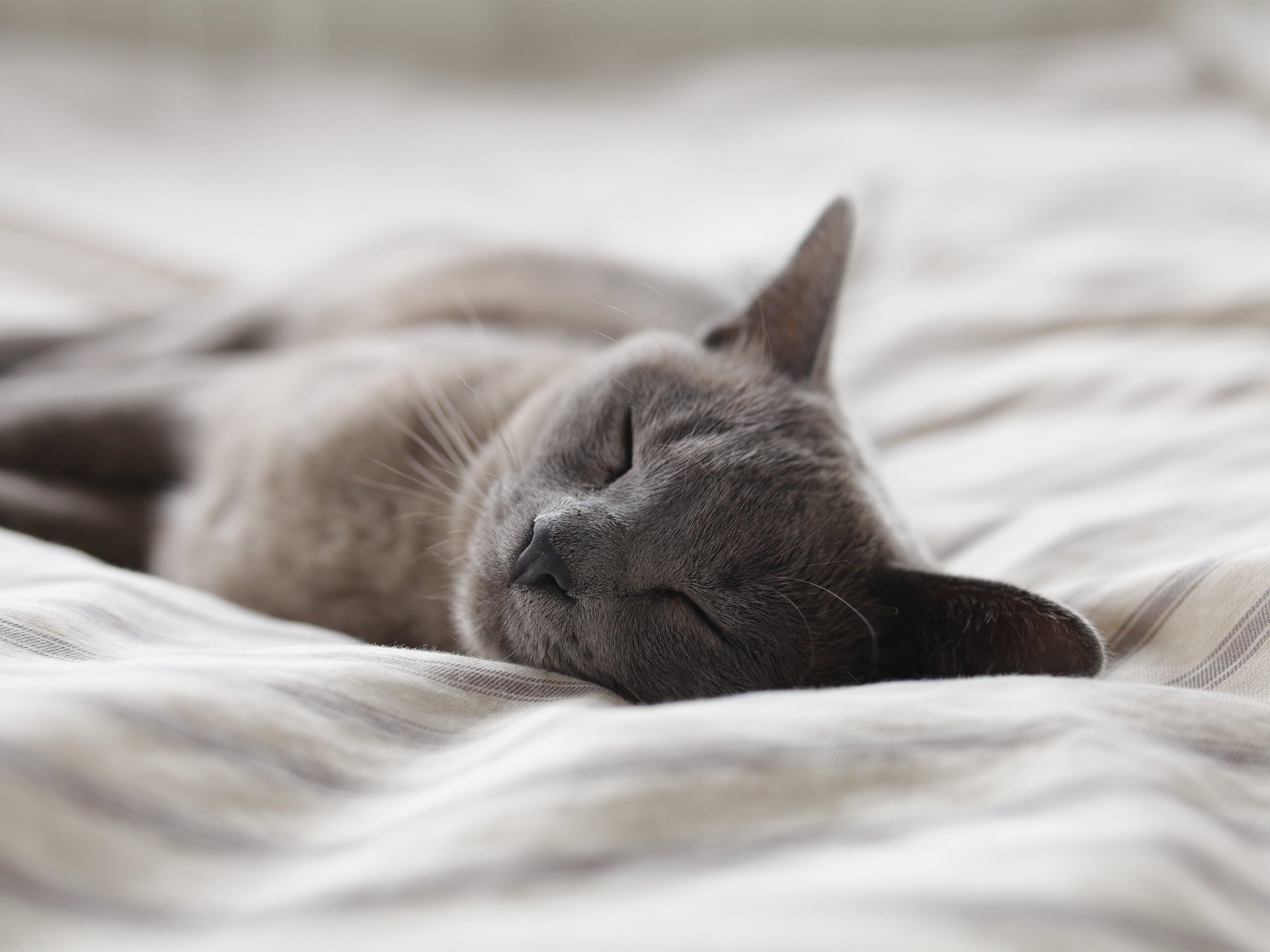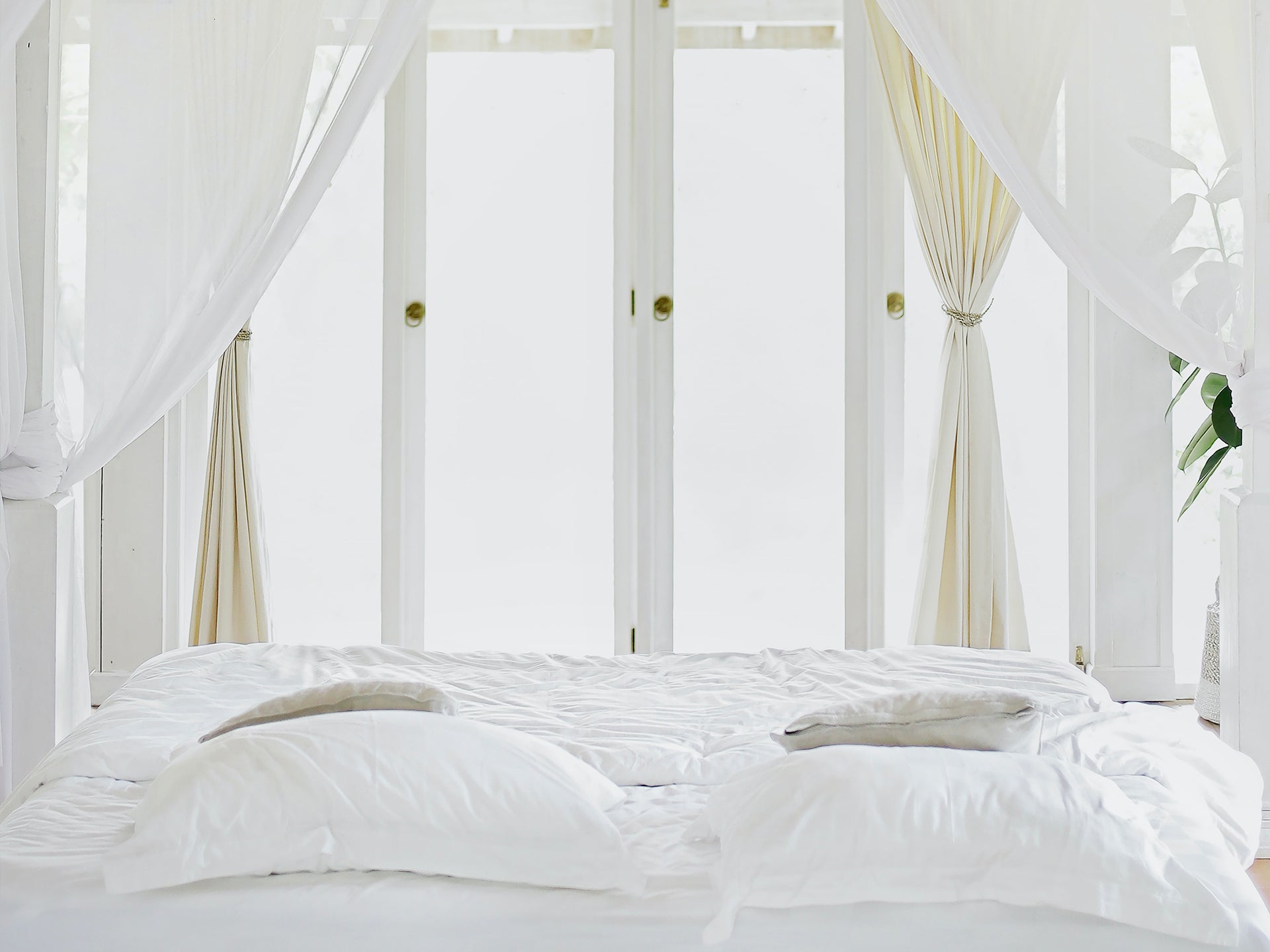The vast majority of us know that sugar can affect our bodies in a variety of different ways. But does eating sugar before bed affect the quality of our sleep? The answer to the question is, Yes, one of the unknown side effects of eating too much sugar before bed is that it affects how you sleep.
In this article we cover some of the effects of eating sugar before bed, how it impacts our sleep, and steps you can take to get a better night's sleep tonight.

1 What effect does eating sugar before bed have on your sleep?
It is a common misconception but sugar fills you with energy and as a consequence eating sugar before bed keeps you awake. There's no scientific evidence to support the sugar high . In reality, the opposite is often true. Eating sugar before bed does impact us in a variety of different ways. Unfortunately, the impact of eating sugar before bed will often go unnoticed. But the following results are common
1.1 Sugar can cause you to wake regularly during the night
There's no denying that the thought of that sugary after dinner treat makes most of us drool. However, we are blissfully unaware of the impact of all this sugar, especially while digging into this bowl of ice cream, scoffing a cookie or two or eating other desserts. Each packed full of sugar that can affect how we sleep.
Research has showed that eating sugar before bed results in a restless night's sleep. Spiking our blood sugar levels can result in less time being spent in REM sleep. As a result we are affecting our body's ability to metabolize, boost our immune system, physically restore and heal as this phase of sleep is vital for all form. Eating sugar before bed means we often take longer to fall asleep and overall I have a restless night's sleep.
1.2 Eating sugar before bed stimulates your appetite and other cravings
Your brain's reward circuitry is directly linked to your metabolism and your hunger feelings. This complex mixture of hormones is easily triggered by coming into contact with sugar.
Some research has even shown that the simple looking at a sugary treat can trigger the release of dopamine, filling you with feelings of satisfaction and pleasure. The more sugar we consume, the less our brain responds to the natural dopamine rush. As a result, it's forced to produce far more dopamine to get the same feelings of satisfaction and pleasure, meaning it triggers more and more cravings for sugar.
So, how does all this result in a terrible night's sleep? These cravings can cause overconsumption of sugar and a distorted appetite. Much of this leads to late night sugar binges that can disrupt your sleep patterns. This can cause even more vicious cycle as less quality sleep you get the more you can crave sugar.
There are a number of studies that directly correlate insufficient or poor sleep with the production of and importantly the function of the hormones that regulate your appetite these include Ghrelin and leptin. These are important for regulating your blood sugar levels.
Overstimulating your appetite and disrupting your sleep puts you at risk of diabetes and regularly leads to excessive weight gain both of which are linked to bad sleeping habits.
1.3 Can increase any inflammation in your body
Your sugar consumption levels can promote excess information in your body. While this may not directly result in a poor quality of sleep research has shown that both inflamation and sleep patterns are regulated by the same biorhythms within your body.
This means it directly affects them, consuming sugar before bed can promote inflammation and this can affect your sleep in a variety of different ways. For example, inflamation causes an elevated number of cytokines to be produced. Scientists have linked these chemical messengers to insomnia and to inflammation that can cause excess pain, making a comfortable and sound like sleep more difficult.

2. What is the recommended amount of sugar you should eat every day
The vast majority of people living in the western world are eating an excessive amount of sugar. According to the World Health Organization, an average man needs 35g of sugar every day and an average woman needs 25g of sugar. That's roughly 7 to 9 tbsp of sugar.
Studies shown that on average most people consume three times that and the figures are growing every year. More and more sugar is being added to our diet. Sugar that offers simply nothing but calories and virtually no nutritional value. In order to protect your health, avoid any products that has added sugar. Besides carefully checking any labels for the amount of added sugar. You should also look for some telltale signs of excess consumption these include acne breakouts, sugar cravings, weight gain, and poor oral health.

3. Ways to reduce the effect of eating sugar before bed
Okay, now that I gave you all the bad news, it's time to tell you that some simple changes can quickly result in tremendous improvements. It's possible to change your diet that can cause a better night's sleep nearly immediately and here are some of the best places to start.
3.1 Eat high fiber snacks instead of sugary treats
When you quit eating sugar before bed, there's going to be a void left to fill. The best thing to add to your diet as a replacement is a high fiber snack. By adding fiber as part of an evening treat that makes you feel more full slows your digestion and controls your blood sugar levels all of it helps with sleep.

3.2 Add more fresh fruit to your diet
Once you've caught up unnatural and unhealthy sugars, it's time to look for a natural replacement. Fresh fruit is the obvious choice as if your PlayStation but it's also full of water fiber vitamins, minerals and antioxidants. And added bonuses it tastes good. So instead of waiting for your usual sugar cravings in the evening and some fruit to every meal on this will help regulate your cravings but stop you getting hungry in the evenings produce healthy hormones and get a better night sleep.
3.3 Try to eat more protein-rich foods
One of the most tough parts of quitting sugar is the detox phase. I think a little of extra protein to every meal will help you tackle the reduced energy levels and hungry you feel. Protein helps you feel full and manage your sugar cravings. There are several ways to add healthy protein to your diet including nuts, legumes, beans, eggs, lean meats, and even fatty fish. Add some protein to every meal to help you avoid hunger and low energy levels during your sugar detox.

3.4 Stop buying sugary foods
It's difficult to give in to temptation if you don't have a sugary treat on hand when you're living one. Why would you buy sugar foods if you're trying to reduce the amount you eat before bed? What part of the moon it will not stop you reading the fridge or pantry for a late night sugar hit. But if when you open the door all you have is a piece of fresh fruit to eat that's much better than any artificial sugar is it used to keep in the fridge, on top of removing all temptation from your home it's important to factor into account other ways of distracting your sugar cravings. I want to study showed that happening in some puzzles on hand is it a very effective way to distract your mind from these cravings.
3.5 Try to better manage your stress levels
There have been some extensive studies on the relationship between stress and sugar consumption. Because sugar reduces the impact of stress hormones, your body creates when you feel stressed. If you're trying to reduce the amount of sugar you eat before bed, one thing the things you're going to have to be aware of is your stress level. But keeping this under control it will make cutting sugar from your diet much easier. Three of the most effective ways of managing stress are reading, talking, and exercising.

The Bottom line
As you can see, there are a wide variety of different ways to help you overcome your sugar cravings before bed to reduce the negative effects they have on your sleep. Experts will tell you to take one step at a time and keep things as simple as possible and make small, manageable tweaks on a step-by-step basis that will gradually improve your sleep. Keep a close eye on your sugar consumption avoid eating sugar before bedtime and try to keep a healthy and regular sleep pattern. These will make kicking that sugar habit easier and quickly help you to enjoy a better night's sleep.






